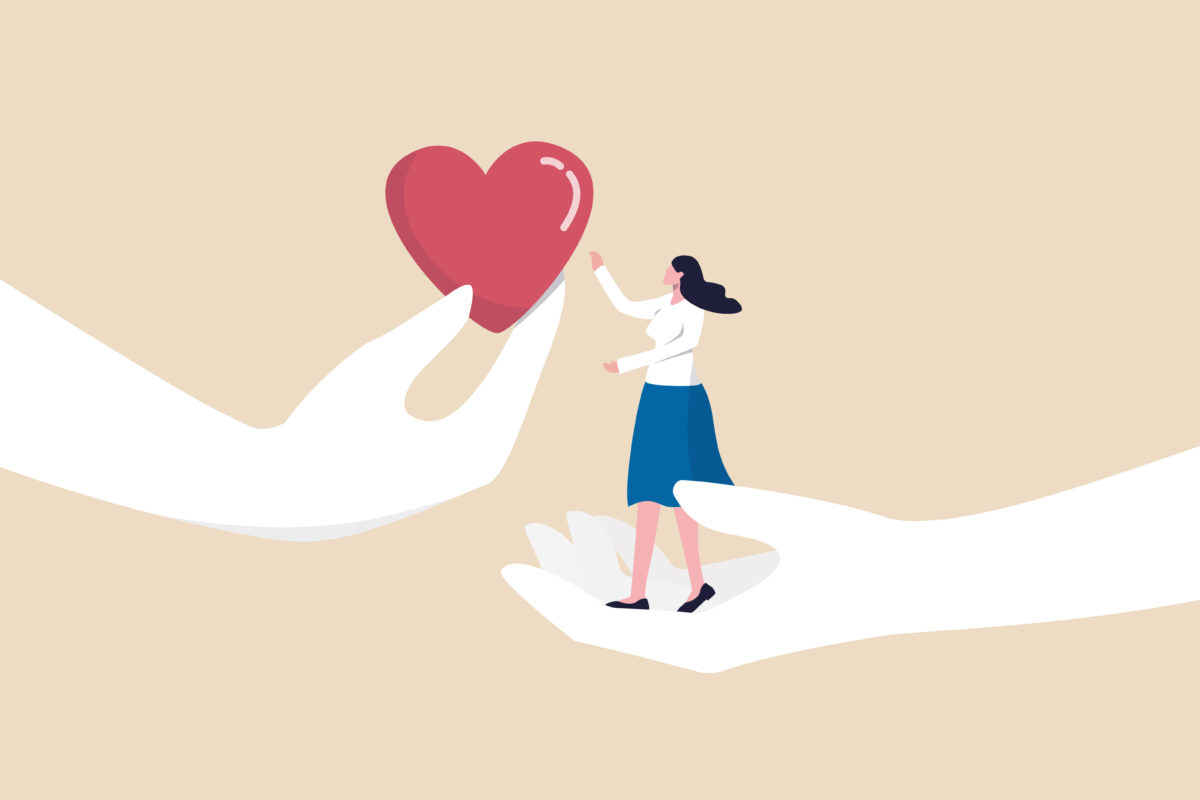Thank you, Gd, for bringing me to this moment.
In a nutshell, that’s the shehechiyanu blessing. I have said it throughout my life – on Jewish holidays, at my Bat Mitzvah… going to a Jewish day school, I’m sure we said it for various things. But as an adult, I didn’t really say it much – or any prayer, if I’m being honest. After I left day school, prayer and Judaism sort of drifted off.
When I started the journey to become a single mom by choice, I fell into prayer again. I wanted to be a mother more than anything else in the world and, as the saying goes, there are no atheists in a foxhole (or in the waiting room of a reproductive endocrinologist), so I prayed. Sure, I utilized science, but I also figured prayer couldn’t hurt. And when those two pink lines came up, I recited the Shehechiyanu blessing (and took my progesterone).
I have said Shehechiyanu multiple times since then. Countless times. There is something about the element of wonder ingrained in the prayer that makes it so appealing to me: I made it to this moment, thank you for helping to bring me here; let’s take a minute to just appreciate it.
There’s something pure in that, isn’t there?
I’ve written before about apraxia of speech. Raising a child who lives outside of the expected typicality can be a different experience of parenthood (but let me be clear: no less magical and wonderful). The chasm between my experience of motherhood and that of many friends was pretty marked early on. For many parents like me, there is no village, especially for any “atypical” experiences, for lack of a better word.
But when my son said his name for the first time, at nearly 3 years old, I recited Shehechiyanu through my tears.
The ableism that is such a prevalent part of our society here in the U.S. – even in our Jewish communities – can be so pervasive that we don’t even see it anymore. Especially when it comes to children. It has become commonplace to enroll kids in summer camps and overschedule them with activities and sports and “enrichment”(extra lessons, anything to – Heaven forbid – keep them from being bored) that, many times, are not accessible or inclusive. Many parents sign their children up for these without a second thought; for us, it is not so easy. Which is why every wonderful experience for us is something to celebrate.
On my son’s first day of in-person Hebrew school, I said the Shehechiyanu blessing. Nine months later, at his graduation from Hebrew school gan (kindergarten), I said it again.
No longer is it just a rote blessing I recite unthinkingly during a holiday; it’s a mindful moment out of my day that reminds me of my journey to become a mother. It’s a moment of quiet that brings me back to myself. On the hardest days, it’s a reminder of just how much I have to be thankful for. Other days, it can be the one moment of calm I have. Saying the blessing takes me out of the everyday and recenters me.
I am, by nature, a shy person. My son is not. Attending new events where I don’t know anyone doesn’t come easy to me. We’d been attending Shabbat services at our new shul online for a while, and my son wanted to go to Simchat Torah services in-person last fall, so we went. My stomach was in knots and I was very nervous, but we were welcomed and my son was immediately included in the festivities. On the way home, feeling a sense of belonging I hadn’t felt in a while, I said the Shehechiyanu blessing to myself.
When he got his first Covid vaccine, I softly said it under my mask, somehow working the words around the lump in my throat.
I never kept Shabbat as a child, but on Fridays when my son and I make challah, I laugh to myself, wishing my grandmother were here to see this (I can almost hear her delightfully declaring that I became a balabusta, after all), and recite the Shehechiyanu blessing.
And every Friday night, when we safely leave Shabbat services and return home, I say it again. In 2022, sometimes this feels like no small thing.
Motherhood is hard. Single motherhood is hard. But I would not change anything about our journey. That’s not to say it’s always rainbows and sunshine. There have been tears. The world can be unkind to those who do not fit a mold. Even in 2022, with divorce rates at nearly 50% nationwide, in my community, a single parent (especially one by choice) is a bit of a novelty. It gets lonely. I am often exhausted. I know I need to practice better self-care, and try to do more for me. But in the midst of it all, there is grace.
I find it when my son leaves me Post-it Notes on my bedroom door that say “love you mommy” or stick figure drawings of the two of us. Or when I overhear him pretending to make a YouTube video of a Montessori presentation he just learned, and he tells me he wants to be a teacher when he grows up. When I realize I need to stop trying to fit my wonderfully star-shaped child into a standardized round outline of childhood. When I meet someone else who gets it. When we meet people who bring my son into their hearts and naturally or intentionally practice active inclusion.
For all of this, I say Shehechiyanu.








